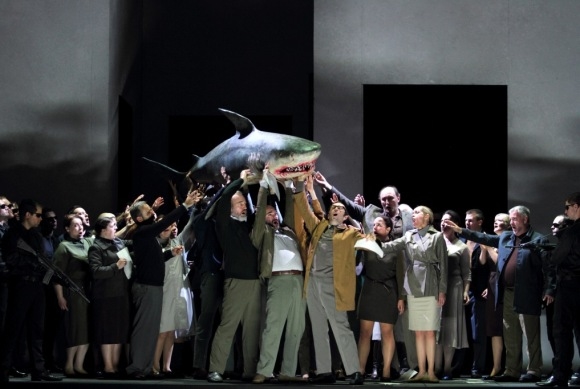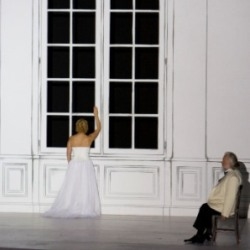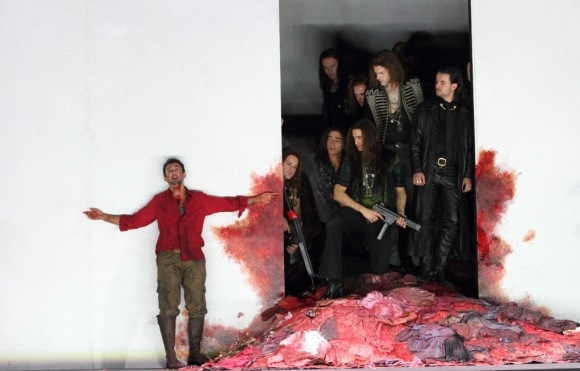Opera – when directors rule

© Catherine Ashmore
I don’t wish to speak on behalf of the people behind these assaults because there’s far too much straw-man arguing around the subject already. I can’t see into the minds of people who want to express their anger in this way but it appears to be a call for a return to a more traditional approach. There even seems to be a feeling that there’s a conspiracy in the opera world, with conductors and singers, while hating what they are asked to do, too afraid to speak out for fear of losing work. It’s the managers and, worst of all, directors who perpetuate the tyranny and bring a glorious art form into disrepute.
We saw a massive backlash earlier this month to the Royal Opera’s new production of Mozart’s Idomeneo by Austrian director Martin Kušej, where the small but audible claque of booers on the opening night was followed by a widespread sniping on social media (and it has to be said in some official reviews) about the staging. Even if you didn’t love the aesthetic of the production the way I did, I can’t see what there was to dislike about it. It felt like a rolling bandwagon of hatred and contempt.
' Regietheater has reinvigorated opera over the last few decades'
The Royal Opera can expect more of the same next week when Christof Loy‘s brilliant production of Tristan und Isolde is revived. Even more than with Idomeneo, it’s incomprehensible that people should be offended in the way they were the first time out. People don’t just reserve the right to dislike something; they have to tell you, and how, on a daily basis, why you should dislike it too. But what does it matter if I like something and you don’t?

© Bill Cooper
It matters if, as has been suggested, that the "eurotrash" approach is destroying a beloved art form, or if you believe such stagings are pouring much-needed state subsidy down the drain – but that seems a bit of an over-reaction to me. I’d suggest that Regietheater has reinvigorated opera over the last few decades, presenting some of the most exciting evenings in the theatre I’ve seen in 40 years (a period during which we’ve seen some significant developments in production style). I’d count both Idomeneo and Tristan in that.
Of course, people who, by and large, enjoy Regie productions don’t like them all (see my review of Calixto Bieito’s Fidelio for instance), any more than those who favour traditional stagings love them all. In both cases, some work and some don’t. It would be daft to like something because it’s conventional or way-out.
I do have sympathy for customers who feel shortchanged (it amazes me that we put up with so much rubbish service from transport and utility companies for instance) and it’s understandable that people want to show their feelings when they feel ripped off. That makes the growing dissent about trends in opera production an interesting, and maybe even welcome, development… but give me an adventurous staging over a dull traditional one any time.












